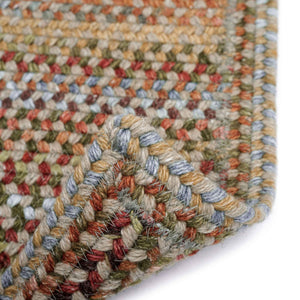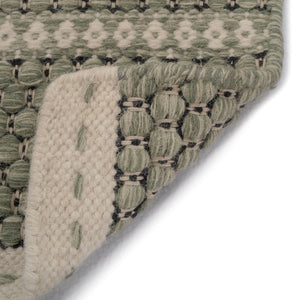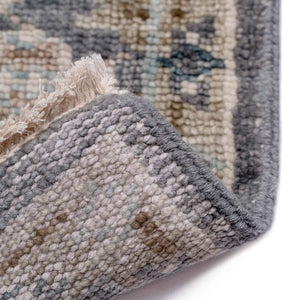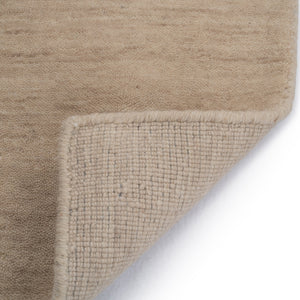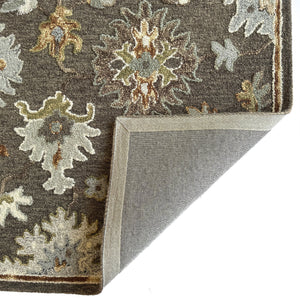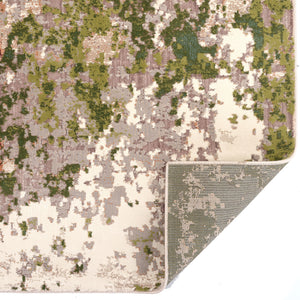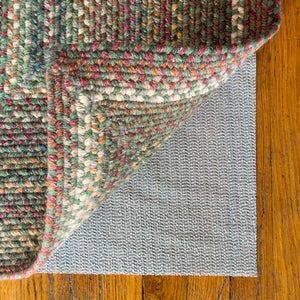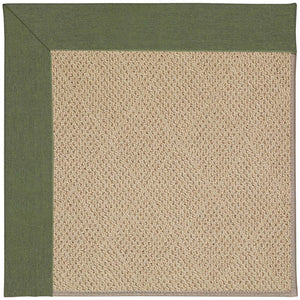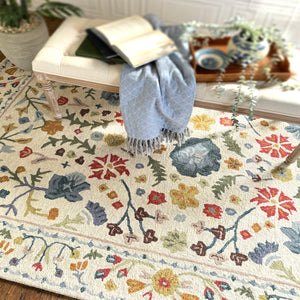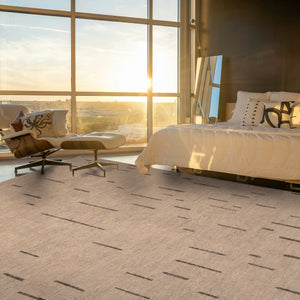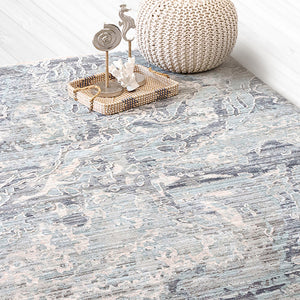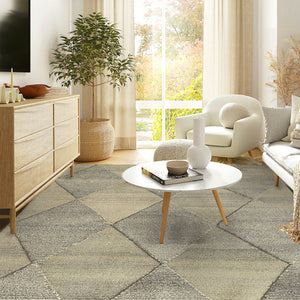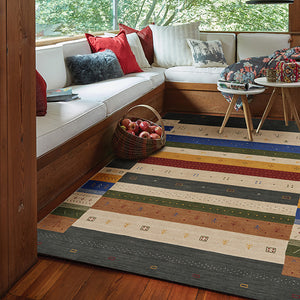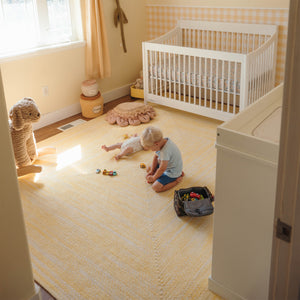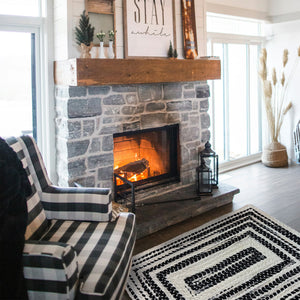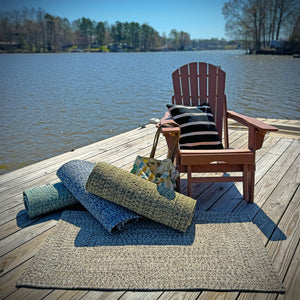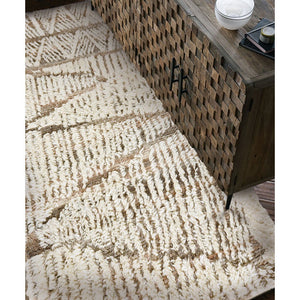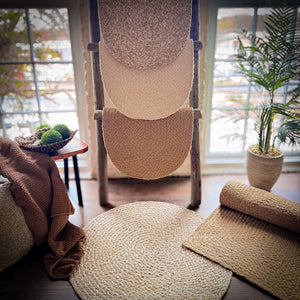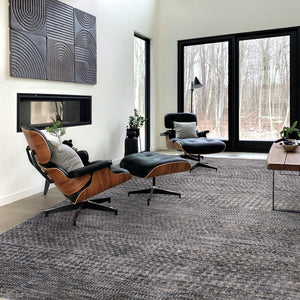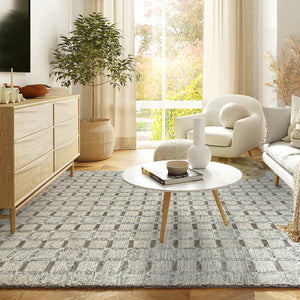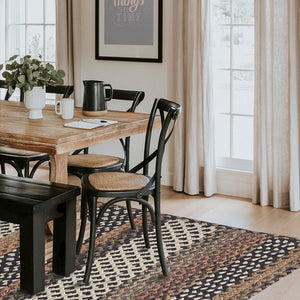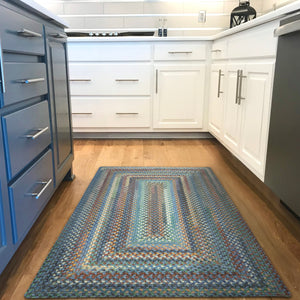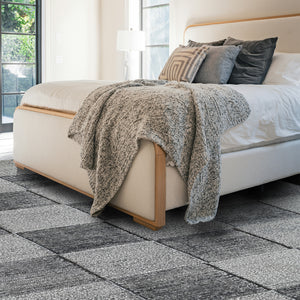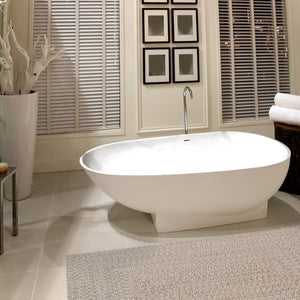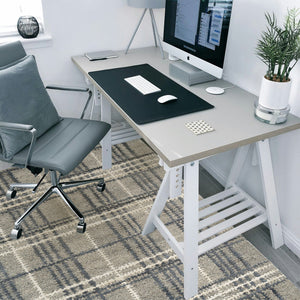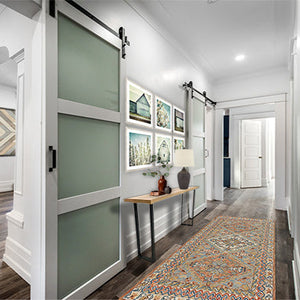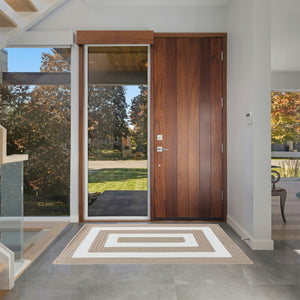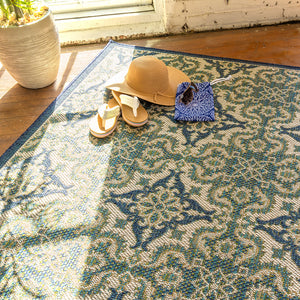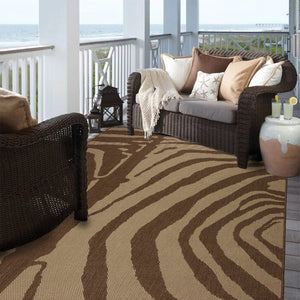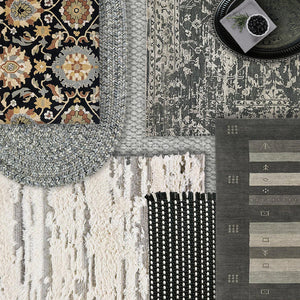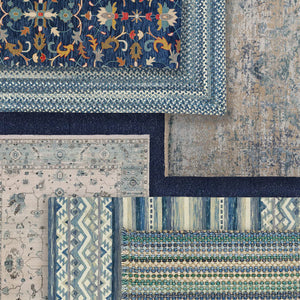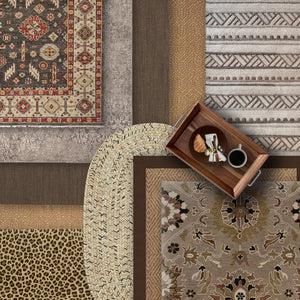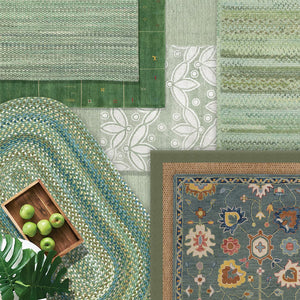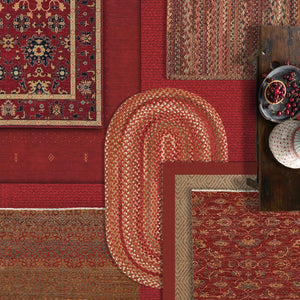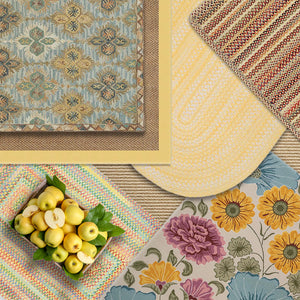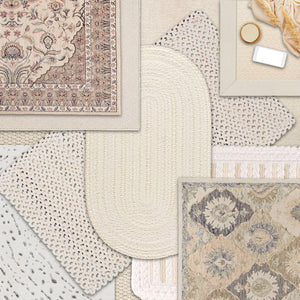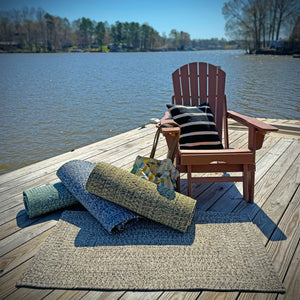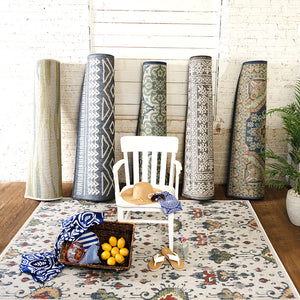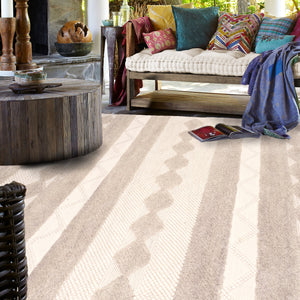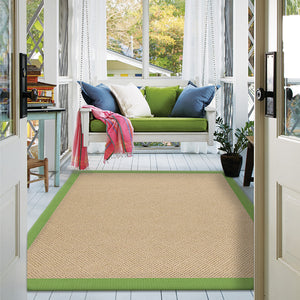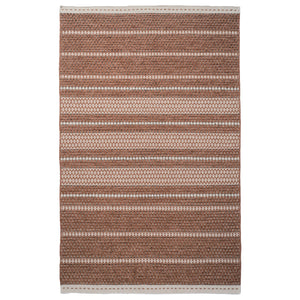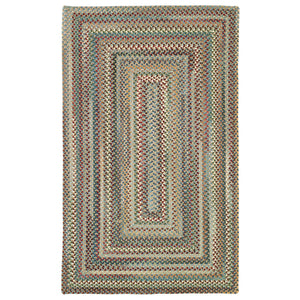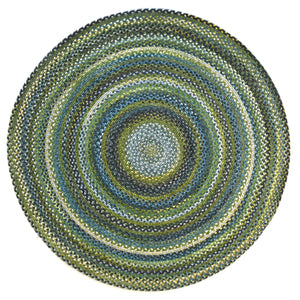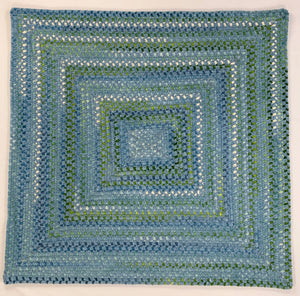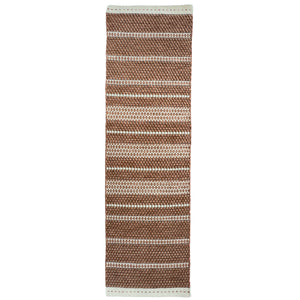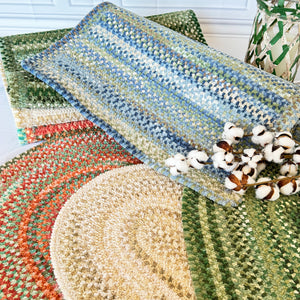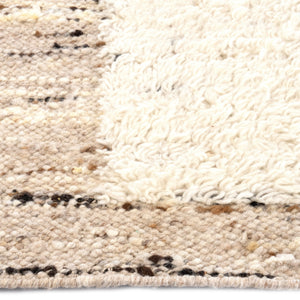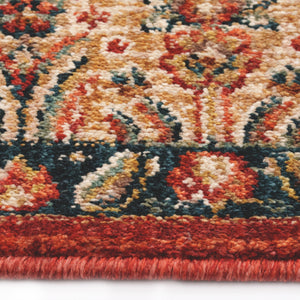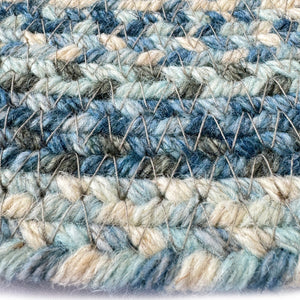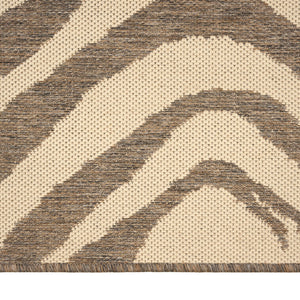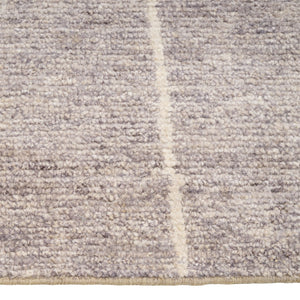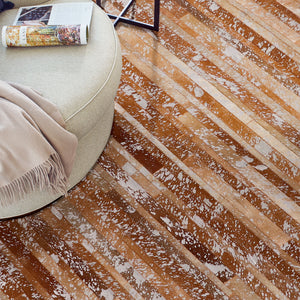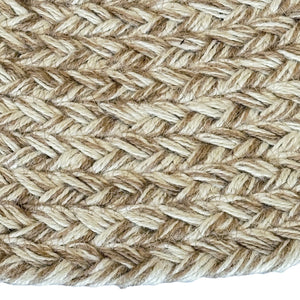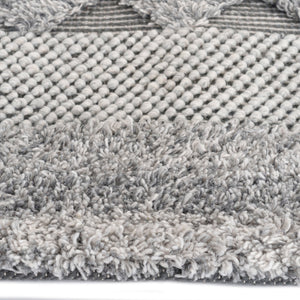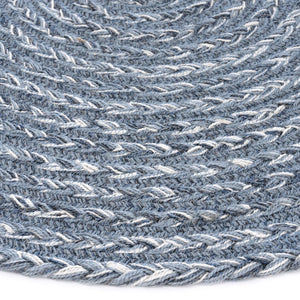Rug Care
|
You can expect years of beauty and enjoyment from a Capel braided rug when it is maintained properly. Home care is very important for any floor covering, and braided rugs may require some unique maintenance over the years, easily accomplished at home. When first unrolled, a new braid may have a wrinkle or a bulge appear that prevents it from laying flat on the floor. This is common and is a result of being tightly rolled or folded during shipment. The wrinkle is easily removed if the proper method is used. Lay the rug as flat as possible. Use a broom handle or similar pole and, starting in the center using a sweeping motion, push one half of the wrinkle to the left. Then push the remaining half of the wrinkle to the right side of the rug. Never push the entire wrinkle to one side or end of the rug; this only stretches the rug and may damage it.
Reverse and rotate braided rugs as they soil. This process will prolong the life of the rug by evenly distributing the traffic to both sides. During initial use, excess sprouts of yarn may work their way to the surface of the rug. This is to be expected, and in no way lessens its wearability. These sprouts should be clipped off at the base with scissors. Do not pull the yarn out as this may result in damage to the rug. Click here for more information.
REPAIR Only the strongest threads are used to stitch the braids together. Should these stitches become broken and cause braids to separate, the rug should be repaired immediately to prevent further separation. The rug can be restored to its original strength by using a simple whip stitch to repair it.
Start just before the damaged area and stitch the braids together. Extend the stitches just beyond the damaged area and then secure them with a knot. Try to duplicate the thread color and use the same size stitch originally used in sewing the braid.
Vacuum regularly (do not use beater bar). Do not shake or beat the rug since this treatment could damage it. Clean spills immediately by blotting with a cloth or sponge. Remove any grease spots with ordinary dry cleaning solvents. To learn how to remove specific stains, view our cleaning guide. Professional or "in home" periodic cleanings using the power spray-extraction carpet cleaning method are recommended. Allow to dry flat on the floor. Clean one side at a time and allow it to dry before reversing to clean the other side.
Using a damp handkerchief, blot an area of the rug. If any dye comes off on the handkerchief, the dyes may run during cleaning.
• Make sure the cleaner can afford an insurance claim should something go wrong.
As a general rule, the safest recommendation we offer regarding cleaning any type of rug is to have it done professionally using the steam extraction method. The frequency of cleaning will vary according to the traffic a rug receives. Just like clothing, rug should not be cleaned either too often or too seldom. Caked on dirt is difficult to remove. Note that latex backed rugs (this includes almost all hand hooked rugs) must not be cleaned using petroleum based solvents. The solvents destroy the latex glue on the back of the rugs. The rug will lose its body and the pile will become loose when solvents are used for cleaning. Reversible rugs should be turned over then around, like rotating a mattress. Once both sides are dirty, have both sides cleaned. Many customers claim that Scotch-guarding or applying a Teflon stain resistant product has helped their rugs stay cleaner, but be sure to apply it before the rug is used.
Indentations or depressions in carpet and rugs are considered a normal occurrence and are not considered a manufacturing defect. The Carpet and Rug Institute, a non-profit trade association of the carpet and rug industry, recommends the following to restore the pile: Depressions - The weight of heavy pieces of furniture can put indentations in carpet. Use furniture glides or cups under the legs of heavy pieces, or move your furniture a few inches backward or sideways so that the weight is not concentrated in one place. If depressions do occur, spritz the indentations with water in a spray bottle. Hold a hair dryer, set on medium, a few inches above the indentation. As the spot is drying use your fingers to gently work the pile upright and in the opposite direction Capel recommends the above instructions except, instead of using your fingers to work the pile, try using an ordinary teaspoon from your kitchen to manipulate the pile to its upright position. Frequent vacuuming and rotating the placement of heavy furniture is always good advice and will contribute significantly to extending the beauty of any rug. Think of the hair on your head. If you wake up from a night's sleep and your hair is all messed up and has lost its style from the previous day, you will not over-react and shave your head or hold your hairdresser responsible. You would probably realize the condition is resultant of pressure points on your hair and would probably either wash your hair or spritz it and then restyle. Rug fibers respond to pressure points and warm water similarly to human hair. |
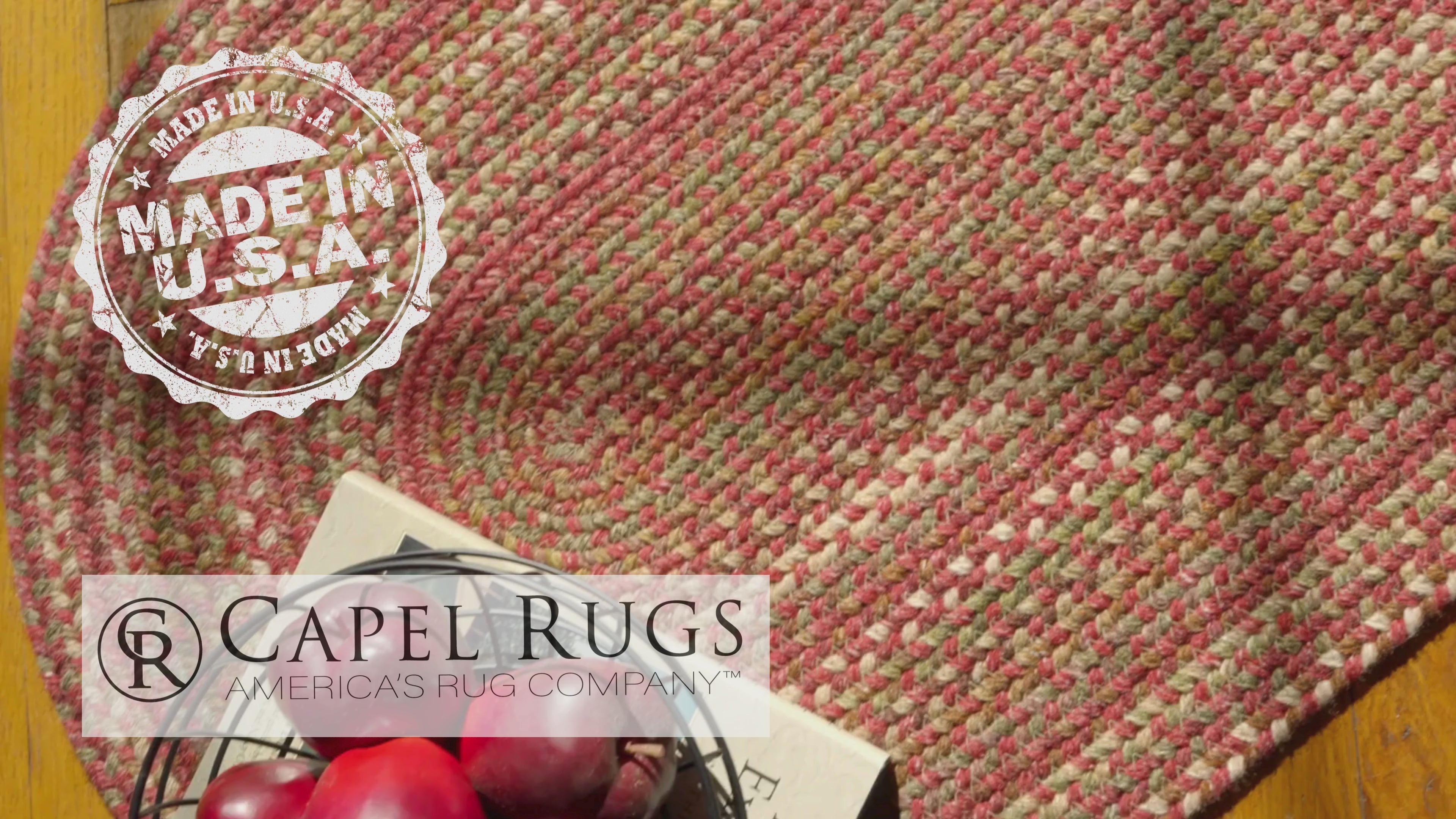
Video

